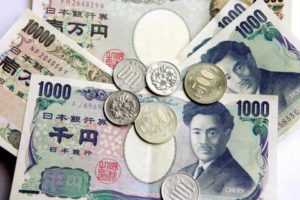 Over the past week, Japan has made it a priority to salvage its economy, as might be expected from a prime minister who was the former finance minister. Japan will raise taxes, sell its stakes in Japan Tobacco, and take drastic measures to halt the rising strength of the yen.
Over the past week, Japan has made it a priority to salvage its economy, as might be expected from a prime minister who was the former finance minister. Japan will raise taxes, sell its stakes in Japan Tobacco, and take drastic measures to halt the rising strength of the yen.
Japan’s long-stagnant economy was further battered by the March 11 quake and tsunami, which triggered a meltdown at the Fukushima Dai-ichi nuclear power plant. In addition to the toll on human lives, estimated to be 20,000, industries along Japan’s northern coast line were wiped out, 100,000 people have been displaced, and power shortages caused by the meltdown have led to Japan’s automakers to suspend production.
In order to finance the reconstruction from the largest natural disaster in Japanese history, the government settled on a plan to raise 9.2 trillion yen ($120 billion) through taxes. Income tax will be raised by 4 percent for a 10-year period starting January 2013, a 2-yen per cigarette tax will be imposed on tobacco, and a plan to cut the corporate tax rate has been suspended for three years.
Japan also expects to raise another 1.5 trillion yen ($19 billion) by selling its stakes in Japan Tobacco. While this caused volatile trading this week, I think it is a wise move for Tokyo, since it disassociates the government from the obvious and disturbing conflict-of-interest with Japan Tobacco owning exclusive rights to market future lung cancer vaccines.
The government will also inject an additional 15 trillion yen ($190 billion) into funds meant to intervene in the rising strength of the yen, now trading for 76.54 yen to the dollar (105 yen to the dollar is considered optimal). The 15 trillion yen hike raises the fund to 165 trillion yen ($2.14 trillion). The yen rose drastically in the immediate aftermath of the March 11 disaster, then quickly normalized. Since then it has been rising steadily, for which Tokyo blames currency speculators. A strong yen hurts Japan’s export-based economy because it makes production more expensive at home, makes Japanese products less competitive compared to other imports on foreign markets, and causes diminishing profits in the conversion back to yen. The government has encouraged Japanese companies to take advantage of the strong yen to acquire foreign businesses, however.
Currency speculators currently see the yen as a safe-haven currency due to the relatively weak dollar and fears of Greek debt wrecking the euro.